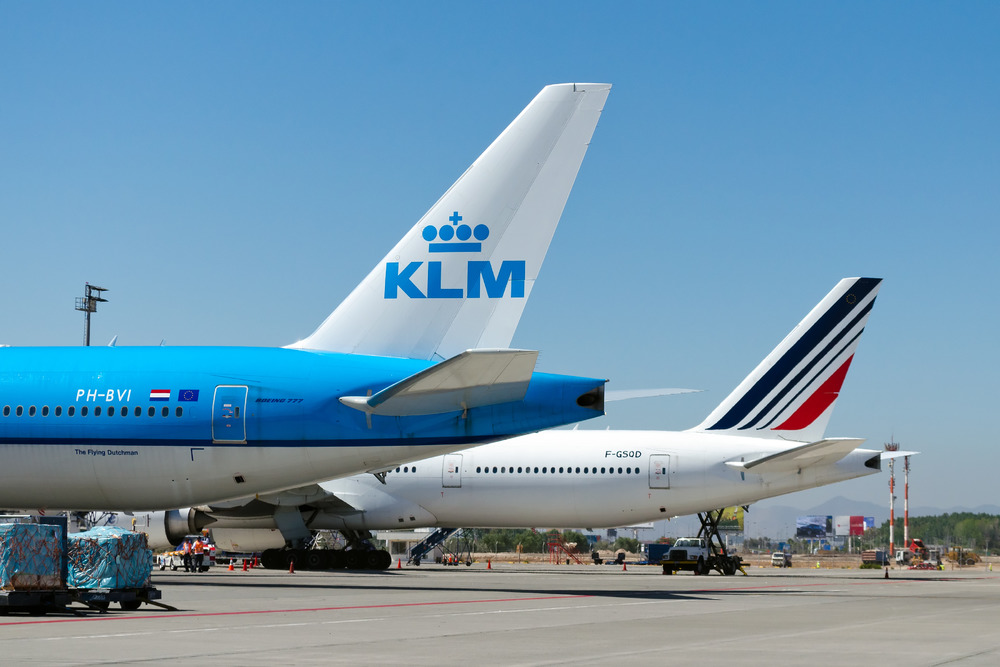The Air France-KLM Group is fully committed to reducing its carbon footprint and aims to be a frontrunner in sustainable aviation. In 2022, the Group was the world’s largest user of SAF, representing 17% of the world’s total production. By comparison, the Group only accounts for 3% of the world’s consumption of conventional kerosene.
In October 2022, Air France-KLM announced an offtake agreement for 600,000 tons of SAF from DG Fuels, to be delivered between 2027 and 2036.
Today, the Group announces a step forward in its cooperation with DG Fuels, with Air France investing USD 4.7 million in the SAF producer. This investment – a first for Air France-KLM – represents a key development in the strengthening of the partnership between the Air France-KLM Group and DG Fuels. It will support the completion of the development work necessary to reach the Final Investment Decision (FID) on DG Fuels’ first sustainable aviation fuel plant, which will be located in Louisiana. This investment confirms the Group’s ambition to participate in the financing of project studies that enable the development of SAF production capabilities worldwide, with the aim of gradually establishing a diversified network able to meet worldwide demand.
In addition to this investment, Air France-KLM has acquired a new option to purchase up to 75,000 tons of SAF per year from DG Fuels, with deliveries planned to start as early as 2029.
Fully committed to reducing its environmental impact, the Air France-KLM Group aims to reduce its CO2 emissions per passenger/km by 30% by 2030 compared to 2019. Its decarbonisation trajectory factors in the incorporation of a minimum of 10% SAF by 2030, alongside fleet renewal and eco-piloting.
“Air France-KLM welcomes this expanded cooperation with DG Fuels. Supporting the scale-up of advanced waste-to-aviation fuel technology is a crucial step to growing the SAF industry. This is the first time Air France-KLM has made a financial investment in a SAF producer and we look forward to further reinforcing our long-term partnership with DG Fuels.”, said Constance Thio, EVP Human Resources and Sustainability, Air France-KLM.
“We are very pleased to broaden our strategic relationship with Air France-KLM. This expansion of our existing relationship is very important to both DG Fuels and to the aviation industry as we build momentum to successfully implementing our first SAF facility and make major scale up plans thereafter. We look forward to working with Air France-KLM as we deploy our SAF technology at additional locations in the United States, Europe and Asia.”, said Christopher Chaput, President & CFO of DG Fuels.
DG Fuels, SAF provider with an efficient, low-cost production process
As a result of its high efficiency carbon conversion process, DG Fuels maximizes the amount of SAF produced from a fixed amount of biomass. This efficiency, combined with reasonable scale results in attractively low unit production costs, allowing DG Fuels to achieve sustained profitability while still offering airline and other SAF customers prices that are competitive with conventional jet fuel. SAF produced by DG Fuels does not compete with global food supplies in any way. As a testament to its commitment to using renewable power, DG Fuels is a major supporter of wind, solar and other forms of zero carbon power.
Destination Sustainability: Air France-KLM’s sustainability trajectory
Air France-KLM has been committed to environmental and social issues for many years, with all of the Group’s commitments falling under its overall “Destination Sustainability” strategy. This strategy is founded on two major pillars: «people & culture” and “environment».
With regard to the «people & culture» pillar, the Air France-KLM Group is a socially responsible company that cares for people and cultures by investing in noise pollution reduction, creating a safe and inclusive workplace, and supporting local communities.
Concerning the «environment» pillar, Air France-KLM has developed a decarbonization strategy that aims to reduce its emissions per passenger/kilometer by 30% by 2030 – compared to 2019 levels, the reference year. To reach this target, Air France-KLM is activating all the decarbonization levers at its disposal:
Fleet renewal with new-generation aircraft: Airbus A220s, Airbus A350s, Boeing 787s – are more fuel-efficient, producing up to 25% less CO2 emissions, and with a noise level reduction of 33% on average. By 2028, these aircraft will account for 64% of the Air France-KLM Group fleet, thanks to an annual investment of two billion euros.
Increased use of sustainable aviation fuel (SAF), which reduces CO2 emissions by at least 75% on average over the fuel’s life cycle and does not compete with the food chain. By 2030, the Group aims to incorporate at least 10% SAF on all its flights, and 63% by 2050.
Operational measures: Ground operations, eco-piloting measures and other initiatives made possible by the actions of Air France-KLM crews and ground staff trained in these practices enable an average reduction of 4 to 5% in CO2 emissions.
To find out more: https://sustainabilityreport.airfranceklm.com/



